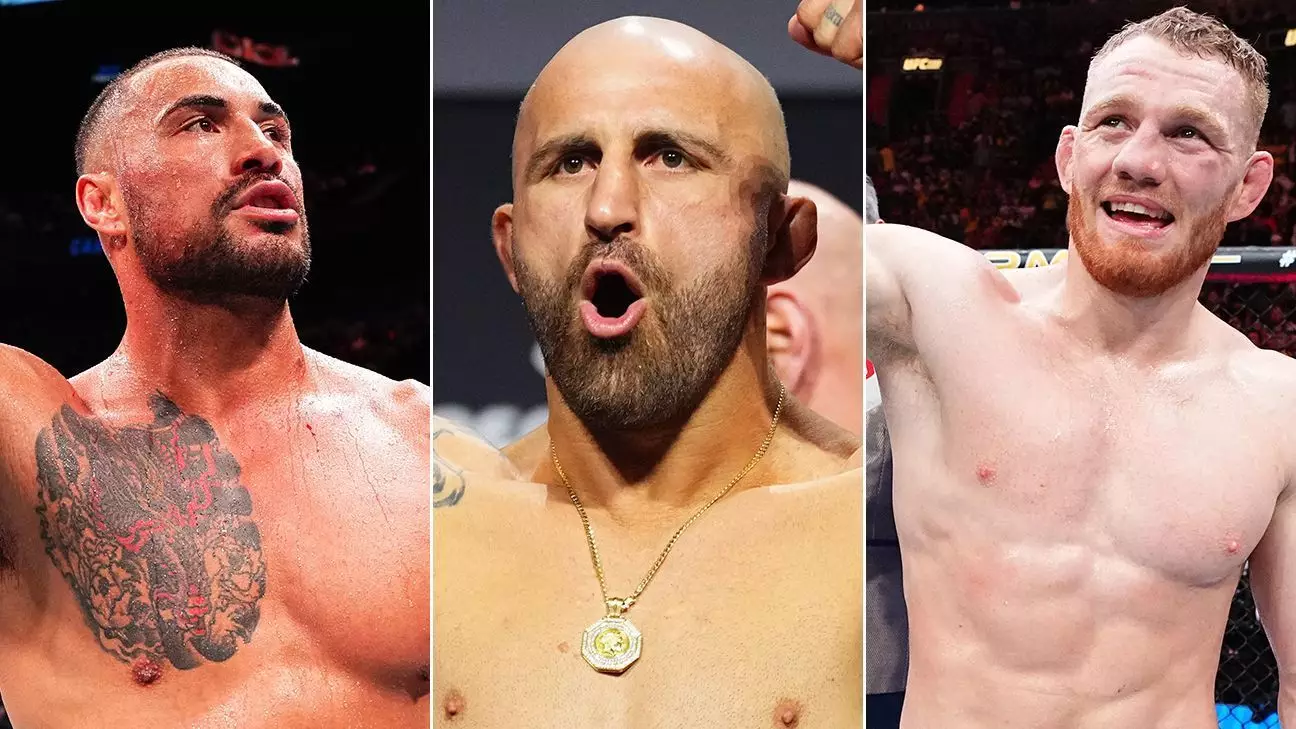As the UFC expands its footprint globally, Australia and New Zealand are poised to become vital players in the mixed martial arts landscape. In just 49 days, three of the region’s strongest contenders—Carlos Ulberg, Alexander Volkanovski, and Jack Della Maddalena—are set to redefine their careers while showcasing the depth and quality of talent emerging from the Oceania market. These fighters not only aim to enhance their own legacies but also to solidify the region’s reputation as a breeding ground for elite fighters.
Carlos Ulberg’s impending bout against Jan Blachowicz in London serves as a critical juncture for his career. With seven consecutive victories, Ulberg is not just looking for another win; he desires to cement himself as a legitimate contender for the light heavyweight title. The potential implications of a victory could be substantial, heralding a shift in the division that could pave the way for a new wave of champions from Oceania.
The Weight of Expectation
However, while Ulberg may be riding a wave of momentum, Alexander Volkanovski finds himself in an uncharacteristic position. Having dominated the featherweight division for over four years, his recent performance—marked by three losses in four fights—has raised eyebrows. The warrior spirit that propelled him to the top is now under scrutiny, and after a long break from the Octagon, doubts about his readiness and commitment have surfaced.
Volkanovski is aware that the pressure is mounting. A victory against Diego Lopes is not just important for his personal trajectory but also for his identity as a leader in Oceania’s MMA scene. His self-awareness is palpable; he acknowledges the potential concerns surrounding his age and the layoff but is determined to counter these doubts through performance. This fight could serve as a litmus test, and should he succeed, it can reaffirm his place in the legacy of the sport.
A Fresh Aspirant in the Mix
The third member of this dynamic trio, Jack Della Maddalena, is gearing up for a title shot that came perhaps sooner than anticipated. Initially slated to face Leon Edwards, an unexpected injury opened the door for Della Maddalena against welterweight champion Belal Muhammad at UFC 315 in Montreal. His readiness to embrace this opportunity signals the confidence and ambition that many young fighters aspire to capture.
Della Maddalena’s approach is straightforward—he’s dedicated to emerging as a champion and contributing to the collective success of Australian and New Zealand fighters. His motivations extend beyond personal accolades; he dreams of bringing prestigious events back to Oceania, enhancing local interest and support for the sport. There’s no doubt that he is aware that his success could inspire a younger generation of fighters, just as he has been inspired by others in the sport.
Collective Ambitions and Potential
Together, Ulberg, Volkanovski, and Della Maddalena represent a formidable trio for Oceania. While individual ambitions fuel their journeys, the overarching narrative is about the consolidation of talent from Australia and New Zealand. Each fight presents a chance to amplify their stories and resonate with aspiring fighters who see a path to prominence through their examples.
The stakes couldn’t be higher. Depending on the outcomes of these fights, there is a real possibility that we could witness the birth of multiple champions or the abrupt halting of aspirations—all of which have ripple effects in shaping the future of UFC in the region. With the possibility of a two-time champion in one evening and the emergence of newcomers, the excitement surrounding UFC’s Oceania talent pool is undeniable.
Building an Infrastructure for Success
Beyond personal accolades, teams like the one at City Kickboxing are pushing for improved facilities and support systems in Australasia. Fighters like Ulberg emphasize the need for a Performance Institute in their home countries. The concept of having world-class training facilities and resources that facilitate better training regimens, recovery mechanisms, and professional guidance mirrors what is available to athletes in other sports.
By advocating for these advancements, fighters signal to the UFC and governing bodies that they are serious about their growth and the overall strength of the sport in their region. The establishment of these support structures would undoubtedly elevate the caliber of athletes emerging from the area and imbue future generations with the tools they need to compete on a global scale.
It is clear that as Ulberg, Volkanovski, and Della Maddalena prepare to make their mark, there is more at stake than personal glory or a singular victory. They represent a broader movement in which Australia and New Zealand’s burgeoning fighting scene may soon become one of the most formidable forces in the UFC. This collective ambition might just position them in a spotlight previously reserved for traditional MMA superpowers.

